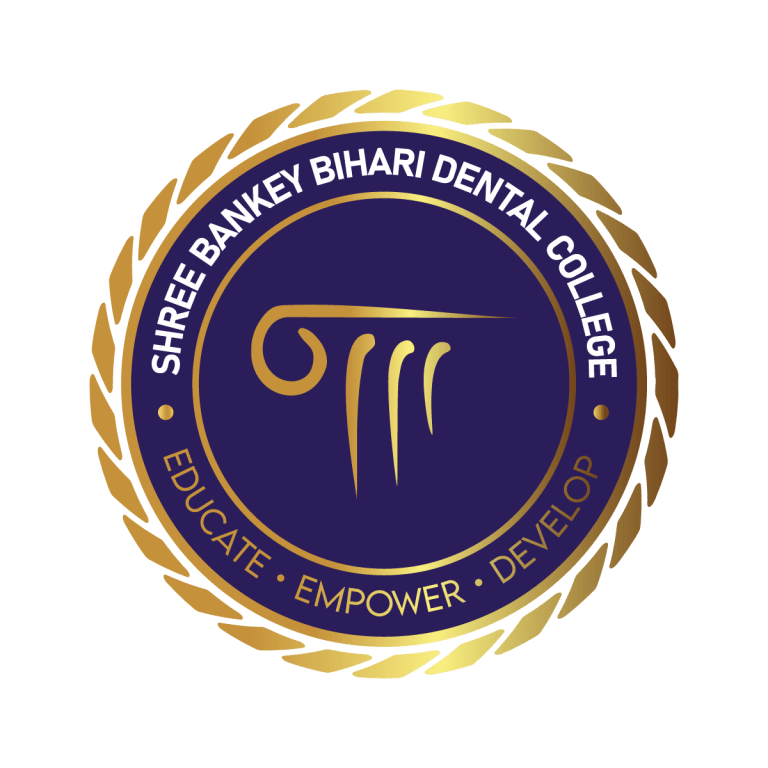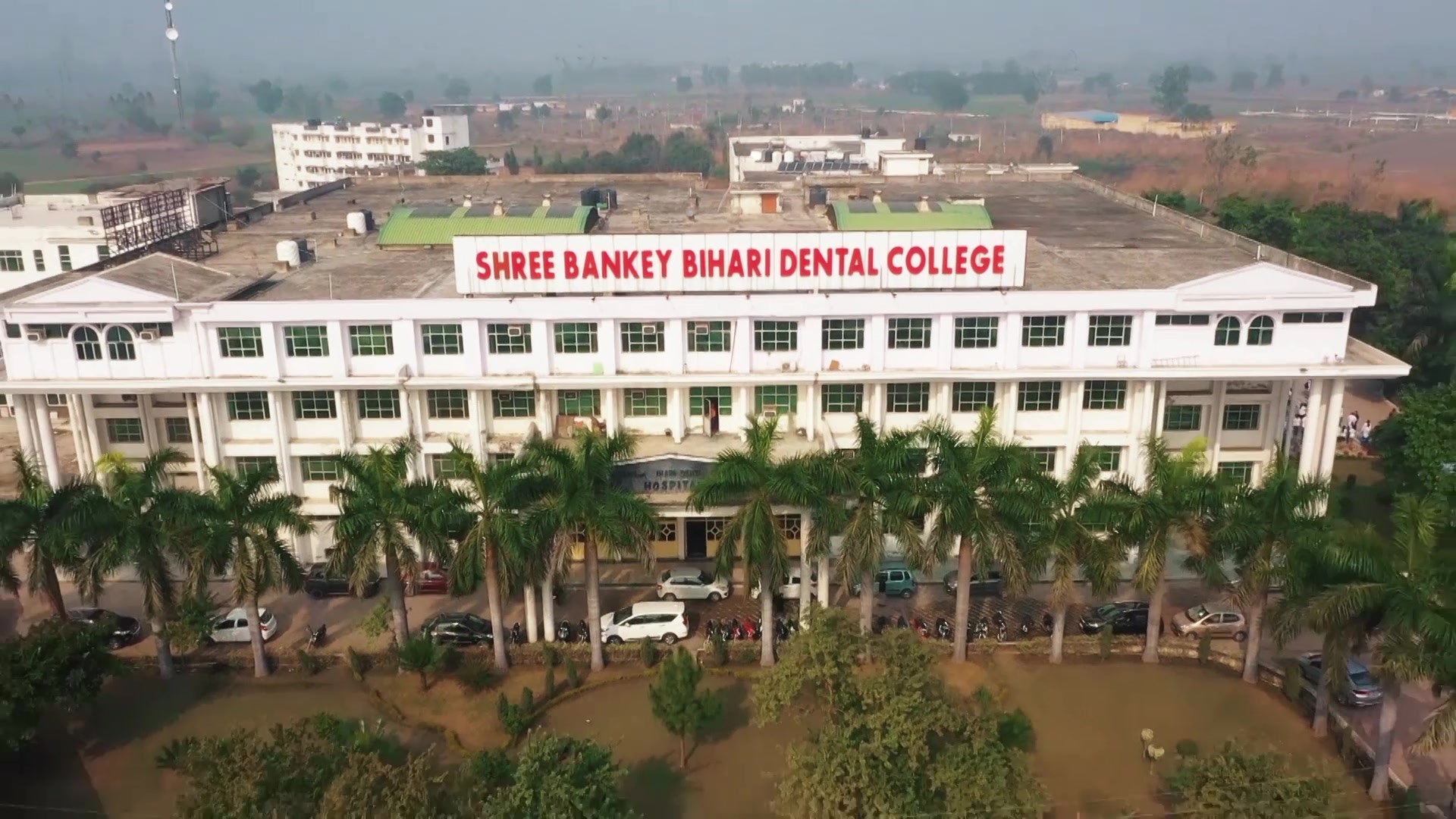


Call Us For Admissions
+91 - 7818864419 +91 - 7818039239OPD Calls / Patient Queries
+91 - 9286982270Mail us for any query
sbbdcadmission@gmail.com




Sports dentistry is a field of dentistry which specializes in avoiding or treating a dental injury which occurs during sports or recreational activities. With increased number of sports enthusiasts, this is becoming an emerging field in dentistry. With the increase in awareness athletes and sports enthusiasts is realizing the need to protect their teeth and maintain good oral health. In this blog, we will explore the importance of sports dentistry, common dental injuries in sports, preventive measures, and the role of dental professionals in protecting athletes' smiles.
In recent years, awareness about the need for specialized dental care in sports has grown. Sports like football, basketball, hockey, and soccer, which involve high contact or sudden movements, often lead to accidents that result in chipped, fractured, or avulsed teeth. Sports dentistry not only focuses on addressing these injuries but also emphasizes preventive measures like custom-made mouthguards to protect athletes’ teeth and jaws.
Athletes are prone to dental injuries while playing, especially in high-contact sports. The most common injuries are:
• Tooth Fractures and Chips: Hard impacts, accidental collisions, or falls can result in minor chips to severe fractures of teeth which may lead to lot of discomfort, pain, sensitivity and injury to tooth’s inner pulp.
• Tooth Intrusion or Extrusion: This happens because of pushing of a tooth inward or tooth is forced out of its socket due to impact. Intruded teeth often require surgical intervention, while extruded teeth may need repositioning and stabilization.
• Tooth Avulsion: When tooth prods out of its socket because of a shock. Immediate action is crucial to save the tooth, making it a dental emergency that demands specialized care.
• Fractured Jaws: Sports-related accidents can lead to severe injuries like fractured jaws, necessitating prompt dental and surgical care.
• Soft Tissue Injuries: This is the injury to the lips, cheeks, gums, and tongue. Lacerations or bruising in these areas often require sutures or other forms of dental care.
• Temporomandibular Joint (TMJ) Dislocation: A powerful blow to the face can cause dislocation of the TMJ, resulting in jaw pain and difficulty in moving the jaw.
Despite of the increasing awareness, many athletes still doesn’t prioritize oral protection. Protective gear like helmets and shin guards are mandatory in many sports, yet mouthguards are often overlooked. It is essential to recognize that even non-contact sports like gymnastics, skateboarding, and cycling carry risks of dental injuries. Here’s why oral protection is vital:
• Preventing Dental Injuries: A custom-fit mouthguard helps absorb and disperse impact forces, effectively lowering the chances of fractures, knocked-out teeth, or injuries to soft tissues.
• Financial Savings: In most of the cases, dental injuries are costly and time-consuming. Preventive measures, such as using a high-quality mouthguard, can help athletes avoid expensive dental treatments.
• Improved Performance: Pain and discomfort due to dental issues can affect an athlete’s concentration and performance. Maintaining optimal oral health increases focus and concentration.
• Concussion Prevention: Research indicates that mouthguards can help lower the risk of concussions by absorbing impacts to the lower jaw, which in turn reduces the force transferred to the skull.
Mouthguards plays a very crucial role in preventing or reducing the impact of dental injury. Following are some type of mouthguards available for the sports people:
1. Stock Mouthguards: Stock mouthguards come pre-made in standard sizes. They are easily available online or offline at any sports store. However, they offer limited protection and often fit poorly, making them less comfortable for prolonged use. Athletes using stock mouthguards may find it difficult to breathe or speak while wearing them, reducing their effectiveness.
2. Boil-and-Bite Mouthguards: They are more customizable than stock mouthguards and provide better protection than stock mouthguards because of the better customized fit. But they don’t deliver the exact fit and comfort in comparison to custom-made alternatives.
3. Custom-Made Mouthguards Custom mouthguards, are created by dental experts specifically matching the shape of an athlete’s mouth. These mouthguards give most amount of perfection, comfort and ease. Dentists use impressions of the athlete’s teeth to create a personalized mouthguard that allows for easy breathing and speaking, making them the gold standard in sports dentistry. Some of its advantages are its optimal fit and comfort, enhanced protection and its durability.
Good oral health is very crucial for athletes to deliver the necessary outcome in its performance. Some dental care tips for them are:
1. Always Use a Mouthguard: They should always use protection gear during any sports activity. Accidents can happen unexpectedly, and a mouthguard can provide critical protection.
2. Stay Hydrated: Dehydration can lead to dry mouth, increasing the risk of oral infections and decay. Athletes should drink plenty of water to stay hydrated and maintain optimal oral health.
3. Avoid Sugary Sports Drinks: Many athletes rely on sports drinks to replenish electrolytes, but these beverages are often high in sugar. Frequent consumption of these drinks can cause tooth decay. Drinking water is better choice for staying hydrated.
4. Practice Good Oral Hygiene: Athletes should brush and floss their teeth regularly to prevent decay and gum disease. Wearing a mouthguard can create a breeding ground for bacteria, so keeping the mouth clean is crucial.
5. Visit the Dentist Regularly: Regular dental check-ups are essential to catch potential issues early and maintain oral health. Athletes should also have their mouthguards evaluated periodically to ensure they are still in good condition.
When dental injuries occur, prompt and effective management is crucial to prevent further complications. Sports dentists handle these emergencies promptly. Here’s how they manage common injuries:
1. Tooth Fractures Sports dentists examine the tooth and suggest the course of treatment. Depending on the severity of impact, treatment like bonding, root canal therapy or crown placement is performed. If the tooth’s pulp is compromised, then to prevent any infection a protective layer is applied by the dentist.
2. Tooth Avulsion In case of broken tooth, athletes should attempt to reinsert the tooth into the socket if possible. If that isn’t feasible, the tooth should be kept in milk or saline solution until dental care is available. Sports dentists can often reimplant an avulsed tooth if treated promptly, followed by stabilization and close monitoring.
3. Jaw Injuries Jaw fractures or dislocations require immediate care. Sports dentists work with oral surgeons to realign and stabilize the jaw, ensuring proper healing and preventing long-term complications.
4. Soft Tissue Injuries Lacerations to the lips, cheeks, or tongue may require sutures or other treatments. Sports dentists ensure that soft tissue injuries are cleaned and repaired to prevent infection and promote healing.
Sports dentists not only handle emergencies but also play a proactive role in preventing injuries and promoting oral health in athletes. They collaborate with coaches, trainers, and other healthcare professionals to educate athletes on the importance of oral protection. Here’s how sports dentists contribute to athlete welfare:
1. Education and Awareness: Sports dentists educate athletes, parents, and coaches on the importance of wearing mouthguards and maintaining oral hygiene. Awareness campaigns can help reduce the incidence of dental injuries.
2. Mouthguard Fittings: Sports dentists provide custom mouthguard fittings to ensure that athletes receive the best possible protection. These mouthguards are tailored to the athlete’s sport and specific dental needs.
3. Regular Check-Ups: Regular dental check-ups help athletes maintain oral health and detect potential issues early.
4. Nutritional Guidance: Sports dentists advise athletes on dietary choices that support oral health. They recommend limiting sugary snacks and drinks and opting for healthier alternatives.
Coaches and parents play a vital role in protecting young athletes from dental injuries. Here are some tips for fostering a culture of oral protection:
1. Encourage Mouthguard Use: Coaches should make wearing a mouthguard mandatory for all sports activities, including practice sessions. Parents should ensure their children have a well-fitted mouthguard and understand its importance.
2. Lead by Example: Coaches can set an example by wearing a mouthguard themselves during training sessions or casual sports activities. This can inspire young athletes to prioritize their oral safety.
3. Create a Safety Culture: Emphasizing safety during training and games can significantly reduce the risk of injuries. Coaches should regularly remind athletes about the importance of wearing protective gear, including mouthguards, and practicing good sportsmanship to avoid unnecessary collisions.
4. Offer Regular Checks and Replacements: Parents should periodically check their child's mouthguard for signs of wear and tear. Coaches can also encourage regular visits to sports dentists to assess the fit and condition of mouthguards, ensuring optimal protection.
5. Educate Young Athletes: Educating young athletes about the consequences of dental injuries can instill a sense of responsibility for their own safety. Understanding the potential risks can motivate them to take preventive measures seriously.
For a promising career in this field, admitting in a top dental college focusing on sports dentistry education is essential. Below are the lists of colleges which offer a good education in this field:
1. Shree Bankey Bihari Dental College: Located in Ghaziabad, Shree Bankey Bihari Dental College is among the Top Dental Colleges in Delhi NCR, offering state-of-the-art facilities and a comprehensive curriculum. The college is known for its focus on practical learning, making it one of the Top Dental Colleges in Ghaziabad and a leading Dental College in UP.
2. Top Dental Colleges in Delhi NCR: The Delhi NCR region boasts several renowned dental institutions that provide specialized training in sports dentistry. These colleges are equipped with modern labs and experienced faculty members who guide students through real-world scenarios in sports dentistry.
3. Top Private Dental Colleges in Uttar Pradesh: Uttar Pradesh is home to some of the best private dental colleges that offer courses in sports dentistry. These institutions are known for their advanced teaching methods, research opportunities, and clinical exposure.
4. Best Dental College in India: Institutions like Shree Bankey Bihari Dental College stand out due to their commitment to excellence in dental education, making them one of the Best Dental Colleges in India for pursuing a career in sports dentistry.
To better illustrate the significance of sports dentistry, let’s look at a few real-life case studies involving athletes:
Case Study 1: The Hockey Player
A teenage hockey player, despite wearing a helmet, suffered a severe blow to the face during a match, resulting in a knocked-out front tooth. Fortunately, the team’s coach knew about proper first-aid steps and immediately placed the avulsed tooth in a container of milk. Upon reaching the sports dentist, the tooth was successfully reimplanted, stabilized, and monitored for several weeks. The player was also fitted with a custom-made mouthguard to prevent future incidents. This case highlights the importance of immediate care and the protective benefits of a custom mouthguard.
Case Study 2: The Gymnast’s Broken Tooth
A 10-year-old gymnast fell during a dismount, chipping her front tooth. The young athlete’s parents initially considered it a minor cosmetic issue, but a visit to a sports dentist revealed that the chip exposed the tooth’s dentin, risking sensitivity and potential infection. The sports dentist performed a bonding procedure to restore the tooth’s appearance and protect its integrity. Following this, the dentist provided the athlete with a thin, custom-fitted mouthguard to wear during practice.
Case Study 3: The Basketball Player with TMJ Dislocation
A college basketball player experienced a strong impact to the jaw during a game, leading to severe pain and limited jaw movement. The player was diagnosed with a temporomandibular joint (TMJ) dislocation. Immediate medical and dental intervention was required to realign the joint. Post-injury, the sports dentist recommended wearing a custom mouthguard to protect against further jaw injuries and to help reduce the risk of concussion from future impacts.
These case studies underscore the critical role that sports dentistry plays in managing emergencies and preventing long-term complications.
Custom Mouthguards:
One of the most critical takeaways from these cases and sports dentistry in general is the effectiveness of custom-made mouthguards. While store-bought and boil-and-bite options provide some protection, they lack the individualized fit and superior impact resistance offered by custom designs. Although custom mouthguards come with a higher initial cost, their advantages far outweigh the expenses and pain associated with treating a serious dental injury.
For athletes at all levels, the cost of a custom mouthguard is a minor investment compared to the benefits of effective protection. Furthermore, the durability of custom mouthguards means they can often last multiple seasons with proper care.
Future Directions in Sports Dentistry
As technology advances, sports dentistry is poised for significant growth in the coming years.
Smart Mouthguards:
The future of sports dentistry may include smart mouthguards equipped with sensors that can measure the impact force of a blow. These devices could provide real-time data to coaches and trainers, allowing them to assess the likelihood of dental injuries or concussions and take immediate action.
1. 3D Printing:
Innovations in 3D printing technology have already started to revolutionize the creation of custom mouthguards. Dentists can now take digital impressions of an athlete’s mouth and use 3D printers to produce precise and comfortable mouthguards quickly.
2. Biomaterials for Mouthguards:
Research is ongoing into new materials that can offer better shock absorption and durability. These materials aim to provide even greater protection against dental injuries, especially in high-contact sports.
3. Telehealth in Sports Dentistry:
With the rise of telehealth, sports dentists can provide remote consultations for athletes who experience minor injuries or need advice on preventive care. This can be especially beneficial for teams traveling for competitions or athletes in rural areas.
Sports dentistry plays a pivotal role in protecting athlete’s denture. By emphasizing prevention through education, the use of custom-made mouthguards, and maintaining good oral hygiene, athletes can focus on their performance without the fear of dental trauma. Coaches, parents, and dental professionals all share the responsibility of promoting a culture of safety in sports, ensuring that athletes of all ages can enjoy their activities with confidence.
For athletes and sports enthusiasts, investing in high-quality protective gear and regular dental check-ups is crucial. By adopting a proactive approach to dental health, the chances of severe dental injuries can be minimized, and in the unfortunate event of an accident, quick and knowledgeable intervention can make all the difference.
As the field of sports dentistry continues to evolve, it is likely that advancements in technology and awareness will further improve the safety and well-being of athletes. From custom mouthguards to smart protective gear, the future holds promising innovations that will continue to safeguard athletes’ smiles and overall health.
In conclusion, protecting your teeth during athletic activities is not just about avoiding pain or cosmetic issues—it’s about preserving your ability to perform, communicate, and smile confidently. Whether you’re a professional athlete, a weekend warrior, or a parent of a young sports enthusiast, remember that a healthy smile is always worth protecting.
Institutions like Shree Bankey Bihari Dental College is one among the leading BDS Colleges in Ghaziabad which offer excellent education and training in this field, preparing future dentists to support athletes in maintaining their oral health. Whether you're an aspiring sports dentist or an athlete looking to protect your smile, the right education and preventive care are key to success.
This comprehensive exploration of sports dentistry underscores the importance of proactive dental care for athletes.